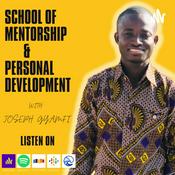Behind The Knife: The Surgery Podcast
Behind The Knife: The Surgery Podcast

Latest episode
610 episodes
Journal Review in Trauma Surgery: Getting to the Heart of the Problem - Prehospital Resuscitative Thoracotomy for Traumatic Cardiac Arrest
2026/1/22 | 50 mins.In resuscitative trauma surgery every second counts. Can time and lives be saved by moving interventions closer to the point of injury? In this episode, we discuss a recent journal article on prehospital resuscitative thoracotomy as a treatment for traumatic cardiac arrest. Opening the chest on the street, who should do it, why should we do it, and for whom?
• Hosts:
Mr Prashanth Ramaraj. General Surgery trainee, Edinburgh rotation. @LonTraumaSchool
Dr Roisin Kelly. Major Trauma Junior Clinical Fellow, Royal London Hospital.
Mr Max Marsden. Resuscitative Major Trauma Fellow, Royal London Hospital. @maxmarsden83
Mr Christopher Aylwin. Consultant Trauma & Vascular Surgeon, Royal London Hospital and Co-Programme Director MSc Trauma Sciences at Queen Mary University of London. @cjaylwin
Mr Zane Perkins. Consultant Trauma & UGI Surgeon, Royal London Hospital and Prehospital Surgeon at London’s Air Ambulance. @ZBPerkins
• Learning objectives:
A) To be aware of the steps of a resuscitative thoracotomy (RT)
B) To understand the rational for prehospital (PH) trauma interventions.
C) To understand the timelines required to optimise success in PH RT.
D) To be familiar with the training governance for clinicians undertaking PH RT.
E) To recognise that PH RT is predominantly an intervention for cardiac tamponade.
F) To understand the contexts in which PH RT might be successful as a standardised intervention.
• References:
Perkins ZB, Greenhalgh R, Ter Avest E, Aziz S, Whitehouse A, Read S, Foster L, Chege F, Henry C, Carden R, Kocierz L, Davies G, Hurst T, Lendrum R, Thomas SH, Lockey DJ, Christian MD. Prehospital Resuscitative Thoracotomy for Traumatic Cardiac Arrest. JAMA Surg. 2025 Feb 26;160(4):432–40. doi: 10.1001/jamasurg.2024.7245. PMID: 40009367; PMCID: PMC11866073. https://pubmed.ncbi.nlm.nih.gov/40009367/
ter Avest, E., Kocierz, L., Alvarez, C. et al. Improving decision-making for prehospital Resuscitative Thoracotomy in traumatic cardiac arrest: a data-driven approach. Crit Care 29, 485 (2025). https://doi.org/10.1186/s13054-025-05705-z. https://pubmed.ncbi.nlm.nih.gov/41233917/
Please visit https://behindtheknife.org to access other high-yield surgical education podcasts, videos and more.
If you liked this episode, check out our recent episodes here: https://behindtheknife.org/listen
Behind the Knife Premium:
General Surgery Oral Board Review Course: https://behindtheknife.org/premium/general-surgery-oral-board-review
Trauma Surgery Video Atlas: https://behindtheknife.org/premium/trauma-surgery-video-atlas
Dominate Surgery: A High-Yield Guide to Your Surgery Clerkship: https://behindtheknife.org/premium/dominate-surgery-a-high-yield-guide-to-your-surgery-clerkship
Dominate Surgery for APPs: A High-Yield Guide to Your Surgery Rotation: https://behindtheknife.org/premium/dominate-surgery-for-apps-a-high-yield-guide-to-your-surgery-rotation
Vascular Surgery Oral Board Review Course: https://behindtheknife.org/premium/vascular-surgery-oral-board-audio-review
Colorectal Surgery Oral Board Review Course: https://behindtheknife.org/premium/colorectal-surgery-oral-board-audio-review
Surgical Oncology Oral Board Review Course: https://behindtheknife.org/premium/surgical-oncology-oral-board-audio-review
Cardiothoracic Oral Board Review Course: https://behindtheknife.org/premium/cardiothoracic-surgery-oral-board-audio-review
Download our App:
Apple App Store: https://apps.apple.com/us/app/behind-the-knife/id1672420049
Android/Google Play: https://play.google.com/store/apps/details?id=com.btk.app&hl=en_US- Behind the Knife ABSITE 2026 – Up-to-date and high yield learning to help you DOMINATE the exam.
Don’t forget to check out our ABSITE Podcast Companion Book available on Amazon: https://www.amazon.com/Behind-Knife-ABSITE-Podcast-Companion/dp/B0CLDQWZG3/ref=monarch_sidesheet
Be sure to check out our free study aid, which includes all 32 review episodes, brief written summaries, high yield images, and flash cards. Simply create an account on our iOS or Android app or on our website and you will find the entire course in your Library.
Apple App Store: https://apps.apple.com/us/app/behind-the-knife/id1672420049
Google Play App Store: https://play.google.com/store/apps/details?id=com.btk.app
Behind the Knife would like to sincerely thank Medtronic for sponsoring the entire 2026 ABSITE podcast series. Medtronic has a rich history of supporting surgical education, and we couldn’t be happier that they chose to partner with Behind the Knife. Learn more at https://www.medtronic.com/en-us/index.html
If you like the work that Behind the Knife is doing, please leave us a review wherever you listen to podcasts.
Please visit https://behindtheknife.org to access other high-yield surgical education podcasts, videos and more.
Check out our recent episodes here: https://behindtheknife.org/listen
Behind the Knife Premium:
General Surgery Oral Board Review Course: https://behindtheknife.org/premium/general-surgery-oral-board-review
Trauma Surgery Video Atlas: https://behindtheknife.org/premium/trauma-surgery-video-atlas
Dominate Surgery: A High-Yield Guide to Your Surgery Clerkship: https://behindtheknife.org/premium/dominate-surgery-a-high-yield-guide-to-your-surgery-clerkship
Dominate Surgery for APPs: A High-Yield Guide to Your Surgery Rotation: https://behindtheknife.org/premium/dominate-surgery-for-apps-a-high-yield-guide-to-your-surgery-rotation
Vascular Surgery Oral Board Review Course: https://behindtheknife.org/premium/vascular-surgery-oral-board-audio-review
Colorectal Surgery Oral Board Review Course: https://behindtheknife.org/premium/colorectal-surgery-oral-board-audio-review
Surgical Oncology Oral Board Review Course: https://behindtheknife.org/premium/surgical-oncology-oral-board-audio-review
Cardiothoracic Oral Board Review Course: https://behindtheknife.org/premium/cardiothoracic-surgery-oral-board-audio-review
Behind the Knife in Español - repaso para el examen de certificación en cirugía general: https://app.behindtheknife.org/premium/repaso-para-el-examen-de-certificaci-n-en-cirug-a-general - Behind the Knife ABSITE 2026 – Up-to-date and high yield learning to help you DOMINATE the exam.
Don’t forget to check out our ABSITE Podcast Companion Book available on Amazon: https://www.amazon.com/Behind-Knife-ABSITE-Podcast-Companion/dp/B0CLDQWZG3/ref=monarch_sidesheet
Be sure to check out our free study aid, which includes all 32 review episodes, brief written summaries, high yield images, and flash cards. Simply create an account on our iOS or Android app or on our website and you will find the entire course in your Library.
Apple App Store: https://apps.apple.com/us/app/behind-the-knife/id1672420049
Google Play App Store: https://play.google.com/store/apps/details?id=com.btk.app
Behind the Knife would like to sincerely thank Medtronic for sponsoring the entire 2026 ABSITE podcast series. Medtronic has a rich history of supporting surgical education, and we couldn’t be happier that they chose to partner with Behind the Knife. Learn more at https://www.medtronic.com/en-us/index.html
If you like the work that Behind the Knife is doing, please leave us a review wherever you listen to podcasts.
Please visit https://behindtheknife.org to access other high-yield surgical education podcasts, videos and more.
Check out our recent episodes here: https://behindtheknife.org/listen
Behind the Knife Premium:
General Surgery Oral Board Review Course: https://behindtheknife.org/premium/general-surgery-oral-board-review
Trauma Surgery Video Atlas: https://behindtheknife.org/premium/trauma-surgery-video-atlas
Dominate Surgery: A High-Yield Guide to Your Surgery Clerkship: https://behindtheknife.org/premium/dominate-surgery-a-high-yield-guide-to-your-surgery-clerkship
Dominate Surgery for APPs: A High-Yield Guide to Your Surgery Rotation: https://behindtheknife.org/premium/dominate-surgery-for-apps-a-high-yield-guide-to-your-surgery-rotation
Vascular Surgery Oral Board Review Course: https://behindtheknife.org/premium/vascular-surgery-oral-board-audio-review
Colorectal Surgery Oral Board Review Course: https://behindtheknife.org/premium/colorectal-surgery-oral-board-audio-review
Surgical Oncology Oral Board Review Course: https://behindtheknife.org/premium/surgical-oncology-oral-board-audio-review
Cardiothoracic Oral Board Review Course: https://behindtheknife.org/premium/cardiothoracic-surgery-oral-board-audio-review
Behind the Knife in Español - repaso para el examen de certificación en cirugía general: https://app.behindtheknife.org/premium/repaso-para-el-examen-de-certificaci-n-en-cirug-a-general - Behind the Knife ABSITE 2026 – Up-to-date and high yield learning to help you DOMINATE the exam.
Don’t forget to check out our ABSITE Podcast Companion Book available on Amazon: https://www.amazon.com/Behind-Knife-ABSITE-Podcast-Companion/dp/B0CLDQWZG3/ref=monarch_sidesheet
Be sure to check out our free study aid, which includes all 32 review episodes, brief written summaries, high yield images, and flash cards. Simply create an account on our iOS or Android app or on our website and you will find the entire course in your Library.
Apple App Store: https://apps.apple.com/us/app/behind-the-knife/id1672420049
Google Play App Store: https://play.google.com/store/apps/details?id=com.btk.app
Behind the Knife would like to sincerely thank Medtronic for sponsoring the entire 2026 ABSITE podcast series. Medtronic has a rich history of supporting surgical education, and we couldn’t be happier that they chose to partner with Behind the Knife. Learn more at https://www.medtronic.com/en-us/index.html
If you like the work that Behind the Knife is doing, please leave us a review wherever you listen to podcasts.
Please visit https://behindtheknife.org to access other high-yield surgical education podcasts, videos and more.
Check out our recent episodes here: https://behindtheknife.org/listen
Behind the Knife Premium:
General Surgery Oral Board Review Course: https://behindtheknife.org/premium/general-surgery-oral-board-review
Trauma Surgery Video Atlas: https://behindtheknife.org/premium/trauma-surgery-video-atlas
Dominate Surgery: A High-Yield Guide to Your Surgery Clerkship: https://behindtheknife.org/premium/dominate-surgery-a-high-yield-guide-to-your-surgery-clerkship
Dominate Surgery for APPs: A High-Yield Guide to Your Surgery Rotation: https://behindtheknife.org/premium/dominate-surgery-for-apps-a-high-yield-guide-to-your-surgery-rotation
Vascular Surgery Oral Board Review Course: https://behindtheknife.org/premium/vascular-surgery-oral-board-audio-review
Colorectal Surgery Oral Board Review Course: https://behindtheknife.org/premium/colorectal-surgery-oral-board-audio-review
Surgical Oncology Oral Board Review Course: https://behindtheknife.org/premium/surgical-oncology-oral-board-audio-review
Cardiothoracic Oral Board Review Course: https://behindtheknife.org/premium/cardiothoracic-surgery-oral-board-audio-review
Behind the Knife in Español - repaso para el examen de certificación en cirugía general: https://app.behindtheknife.org/premium/repaso-para-el-examen-de-certificaci-n-en-cirug-a-general - In their fourth episode, the BTK Surgical Endoscopy team delves into the endoscopic management of the dreaded and unexpected. They review how to take care of high-risk surgical complications and introduce the use of a number of endoscopic tools including suturing, stent placement, clips, and the EndoVac. Following a review of a variety of endoscopic techniques, they present case-based scenarios that allow the listeners to understand the application of the endoscopic interventions in everyday practice. Becoming facile with endoscopic interventions may give surgeons the ability to nonoperatively take care of the most complex patients.
Hosts:
- Dr. Sullivan “Sully” Ayuso, Minimally Invasive Surgeon, Dell Medical School, University of Texas at Austin (Austin, TX), @SAyusoMD (Twitter)
- Dr. H. Mason Hedberg, Minimally Invasive Surgeon, Endeavor Health (Evanston, IL)
- Dr. Trevor Crafts, Minimally Invasive Surgeon, Rocky Mountain VA Medical Center (Denver, CO), @CraftsTrevor (Twitter)
- Dr. Zachary Callahan, Minimally Invasive Surgeon, Nashville Surgical Associates (Nashville, TN), @zmcallahan (Twitter)
Video Link: https://app.behindtheknife.org/video/surgical-endoscopy-series-ep-4-endoscopic-management-of-complications
Please visit https://behindtheknife.org to access other high-yield surgical education podcasts, videos and more.
If you liked this episode, check out our recent episodes here: https://behindtheknife.org/listen
Behind the Knife Premium:
General Surgery Oral Board Review Course: https://behindtheknife.org/premium/general-surgery-oral-board-review
Trauma Surgery Video Atlas: https://behindtheknife.org/premium/trauma-surgery-video-atlas
Dominate Surgery: A High-Yield Guide to Your Surgery Clerkship: https://behindtheknife.org/premium/dominate-surgery-a-high-yield-guide-to-your-surgery-clerkship
Dominate Surgery for APPs: A High-Yield Guide to Your Surgery Rotation: https://behindtheknife.org/premium/dominate-surgery-for-apps-a-high-yield-guide-to-your-surgery-rotation
Vascular Surgery Oral Board Review Course: https://behindtheknife.org/premium/vascular-surgery-oral-board-audio-review
Colorectal Surgery Oral Board Review Course: https://behindtheknife.org/premium/colorectal-surgery-oral-board-audio-review
Surgical Oncology Oral Board Review Course: https://behindtheknife.org/premium/surgical-oncology-oral-board-audio-review
Cardiothoracic Oral Board Review Course: https://behindtheknife.org/premium/cardiothoracic-surgery-oral-board-audio-review
Download our App:
Apple App Store: https://apps.apple.com/us/app/behind-the-knife/id1672420049
Android/Google Play: https://play.google.com/store/apps/details?id=com.btk.app&hl=en_US
More Education podcasts
Trending Education podcasts
About Behind The Knife: The Surgery Podcast
Behind the Knife is the world’s #1 surgery podcast. From high-yield educational topics to interviews with leaders in the field, Behind the Knife delivers the information you need to know. Tune in for timely, relevant, and engaging content designed to help you DOMINATE THE DAY!
Behind the Knife is more than a podcast. Visit www.behindtheknife.org to learn more.
Podcast websiteListen to Behind The Knife: The Surgery Podcast, JIM ROHN and many other podcasts from around the world with the radio.net app

Get the free radio.net app
- Stations and podcasts to bookmark
- Stream via Wi-Fi or Bluetooth
- Supports Carplay & Android Auto
- Many other app features
Get the free radio.net app
- Stations and podcasts to bookmark
- Stream via Wi-Fi or Bluetooth
- Supports Carplay & Android Auto
- Many other app features


Behind The Knife: The Surgery Podcast
Scan code,
download the app,
start listening.
download the app,
start listening.







































